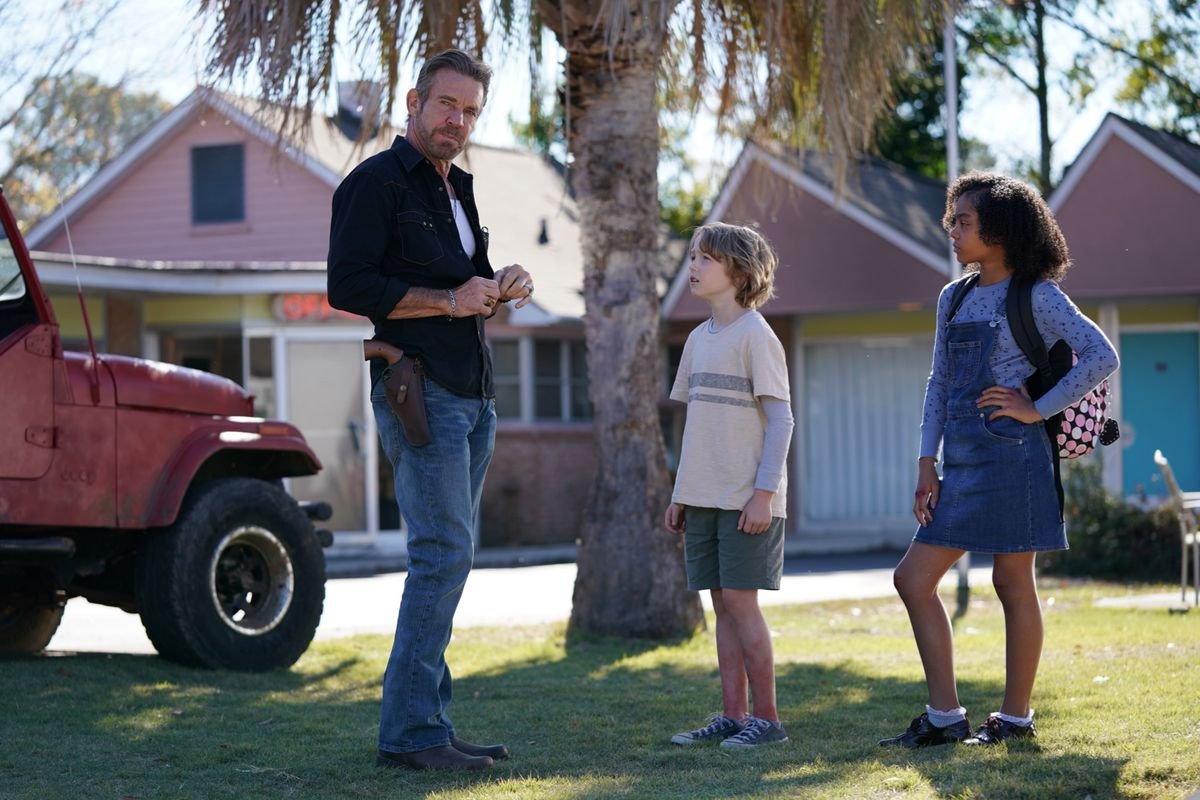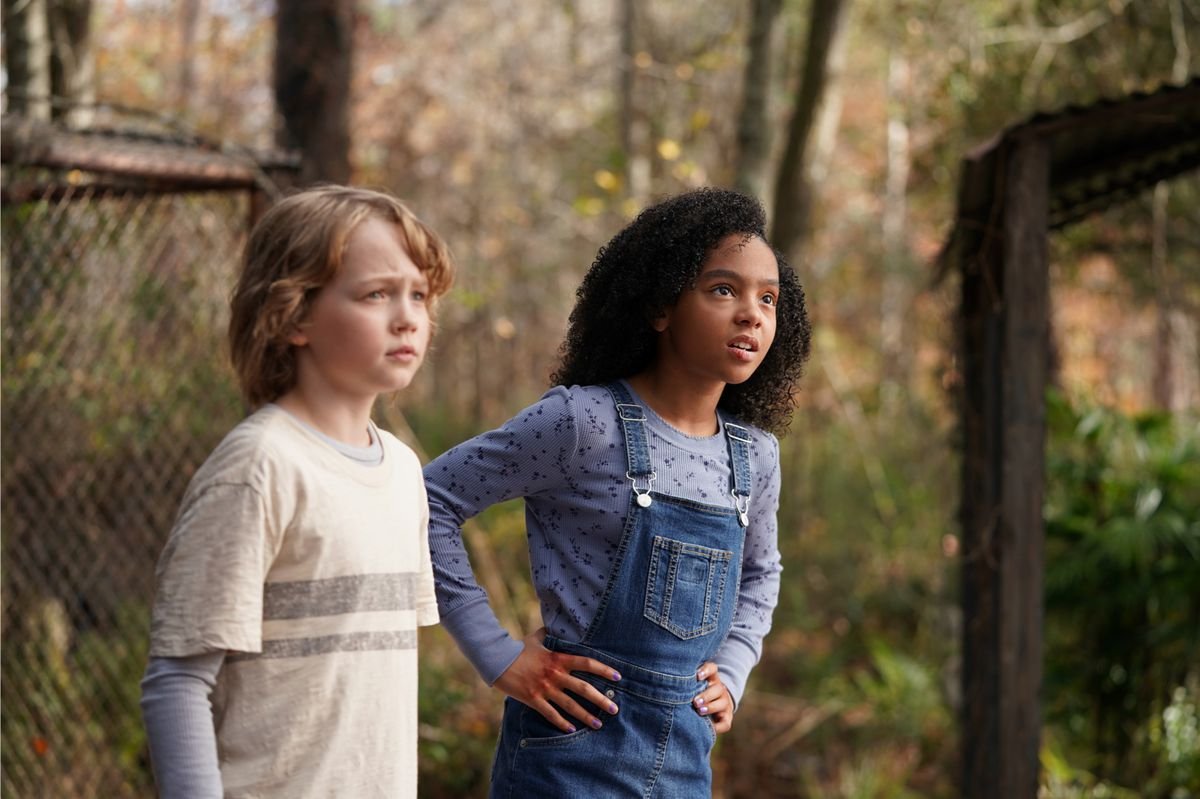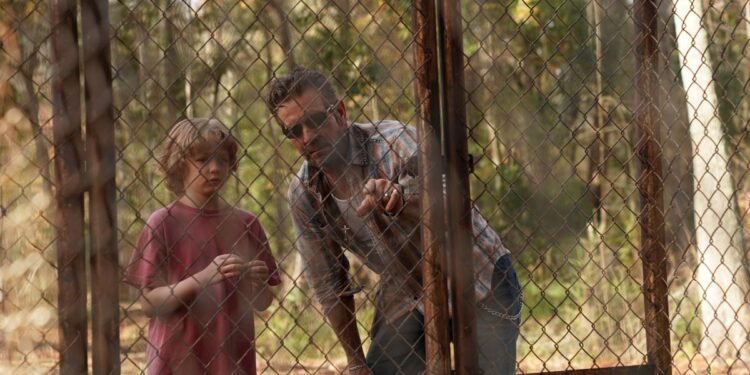When the movie version of Katherine Paterson’s children’s book Bridge to Terabithia came out in 2007, the marketing promised a fun fantasy adventure with epic CG action, akin to the popular Narnia franchise. That was a blatant lie, considering the book is a poignant, devastating exploration of childhood friendship and grief.
The Tiger Rising, a new film from director and writer Ray Giarratana, based on Kate DiCamillo’s kids’ novel of the same name, seems to be employing the same strategy. The trailers hint at a fantasy story that lays a deeper mystery on the story of a tiger in the Florida woods. But ultimately, the story is about processing grief. While that central metaphor and story is powerful, Giarratana’s film buries it under layers and layers of superfluous fluff.
[Ed. note: This review contains some spoilers for The Tiger Rising.]

Image: The Avenue
Rob Horton (Christian Convery) is a shy boy living with his father in a rundown Florida motel after his mother’s death. He has a hard time at school, where the kids pick on him and make fun of the strange rash that’s developed on his legs. When new girl Sistine Bailey (Madalen Mills) ruffles feathers in the small town by declaring her classmates to be uncultured rednecks, Rob sticks up for her, and the two bond over a love of art, especially after she learns that he knows what the Sistine Chapel is and how it was painted. He takes her to see a caged tiger he discovered in the woods behind the motel, owned by his father’s seedy boss, Beauchamp (Dennis Quaid). Sistine wants to set the tiger free, consequences be damned, because no creature should be locked up where it doesn’t belong. But Rob is more cautious about that, fearful of what Beauchamp will do if he finds out they let the tiger go — even if he doesn’t think that the creature should be caged.
The two children share a strange but compelling opposites-attract connection. Sistine is confrontational and aggressive, while Rob is timid and wary. But they bond in a way that goes deeper than their love of art. Both are outcasts in their school, and both are grappling with their own traumas. Rob tries to suppress the grief he feels over his mother’s death, while Sistine still believes her father — who left her mother for his secretary — will eventually come back. Much of the movie is about them coming to terms with their emotions, aided by the sage advice of motel maid Willie May (Queen Latifah).
But though Sistine and Rob’s friendship and their respective trauma in the present would be enough to carry the movie, it’s bogged down by incredibly frequent flashbacks. While some of those scenes are necessary to establish the bond Rob had with his mom and the love of art she instilled in him, most are superfluous, filling space more than serving the story. In one particularly oddly paced scene, Rob’s father yells at him after discovering the rotten meat Beauchamp gave Rob to feed the tiger, thinking Beauchamp is pitying them for not earning enough money. In the middle of that argument, Giarratana cuts to a flashback of Rob’s mother and father sitting on the couch together. He hands her a mug of tea, then pulls out a wood block she sculpted of the two of them. The moment is a jarring interruption — while it’s supposed to evoke the blissful days of a time gone by, it comes so abruptly that it punctures the tension of the fight. Even more so when Rob isn’t a significant part of the memory — he’s just watching from a doorway.

Image: The Avenue
A lot of The Tiger Rising feels similarly unnecessary. One art-teacher character gets a quirky, cute introduction that sets her up as a meaningful character, but she only ends up appearing in two scenes. There are wild special effects that are supposed to reflect Rob’s big imagination, but they ultimately distract from the core emotions. So do the scene transitions, which fade in and out with sound effects that seem better suited for an iMovie presentation. Some of the dialogue is heavy-handed and clunky: When the school principal decides Rob should stay home due to his rash, he says’ he’ll write a note to Rob’s parents, — then dramatically pauses and corrects himself to just say “father.” It’s gratuitous at best and downright distracting at worst, taking away from what could be a streamlined, evocative story about grief.
Still, the genuine emotion in DiCamillo’s original story is hard to suppress, even amid bombastic visual effects and stilted dialogue. The tiger isn’t just a tiger, it’s a metaphor for Rob’s grief and Sistine’s anger. When they finally decide what to do with the tiger — a confident, assured choice that’s meant to be triumphant — it’s easy to get caught up in the childlike fantasy. That makes the subsequent crash of reality hit all the harder.
The throughline of exploring grief is there in The Tiger Rising, it’s just buried beneath all the noise. There are fireworks explosions when Rob imagines Sistine chewing out Beauchamp. There are flashbacks to explain every interaction Rob has ever had with his mother. There are schoolyard ruffians who sound like they’re spitting lines from a “How to be a Bully” WikiHow article. The powerful metaphor of the tiger barely gets time to really sink in, which is a shame, because the movie’s final moments are gut-punching in the best way. Giarratana doesn’t seem to trust that the story of two kids and their emotions is enough of a draw onscreen, so they fluff up the movie to bolster the drama — but really, they should have just let the tiger run free.
The Tiger Rising debuts in theaters on Jan. 21.
























































